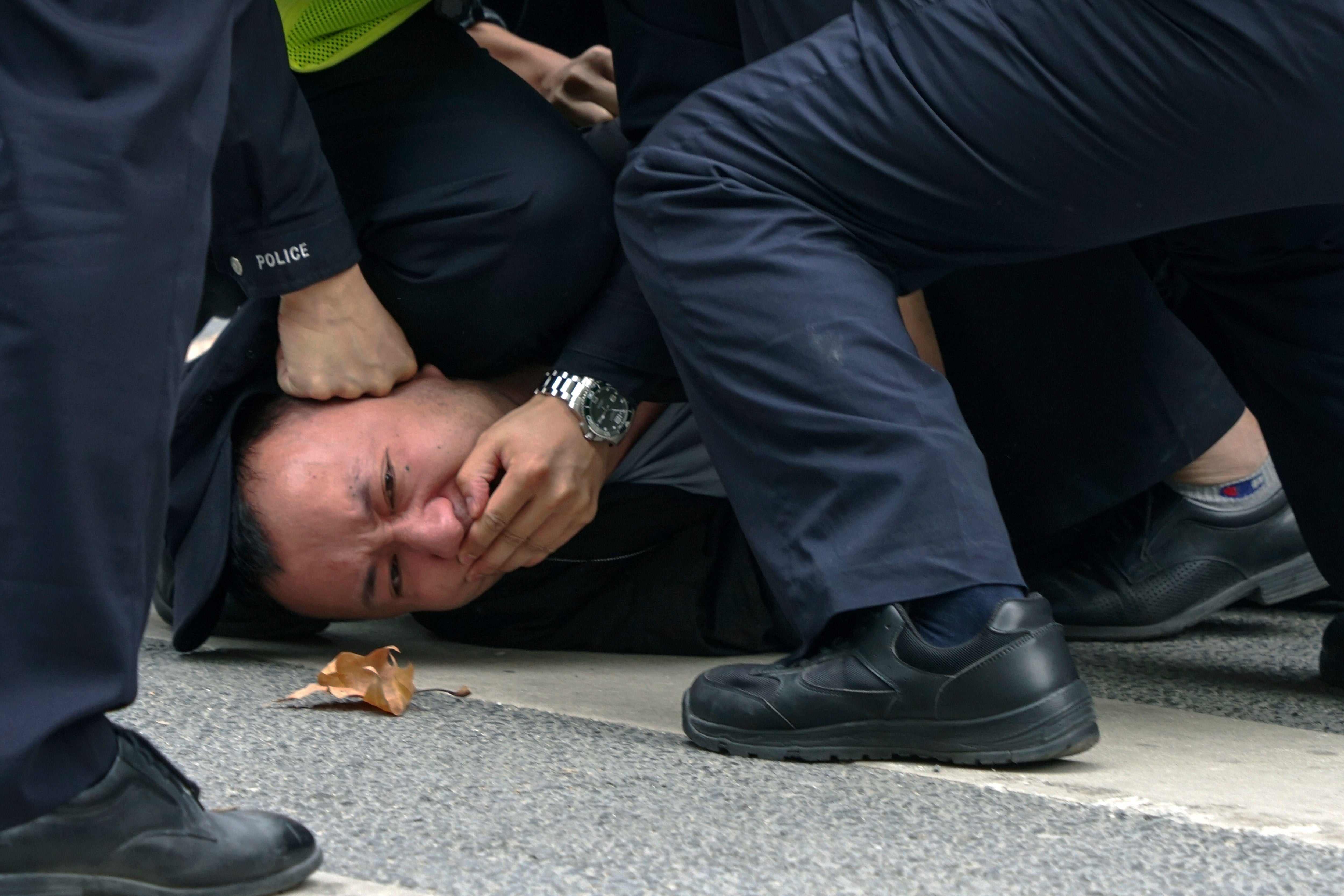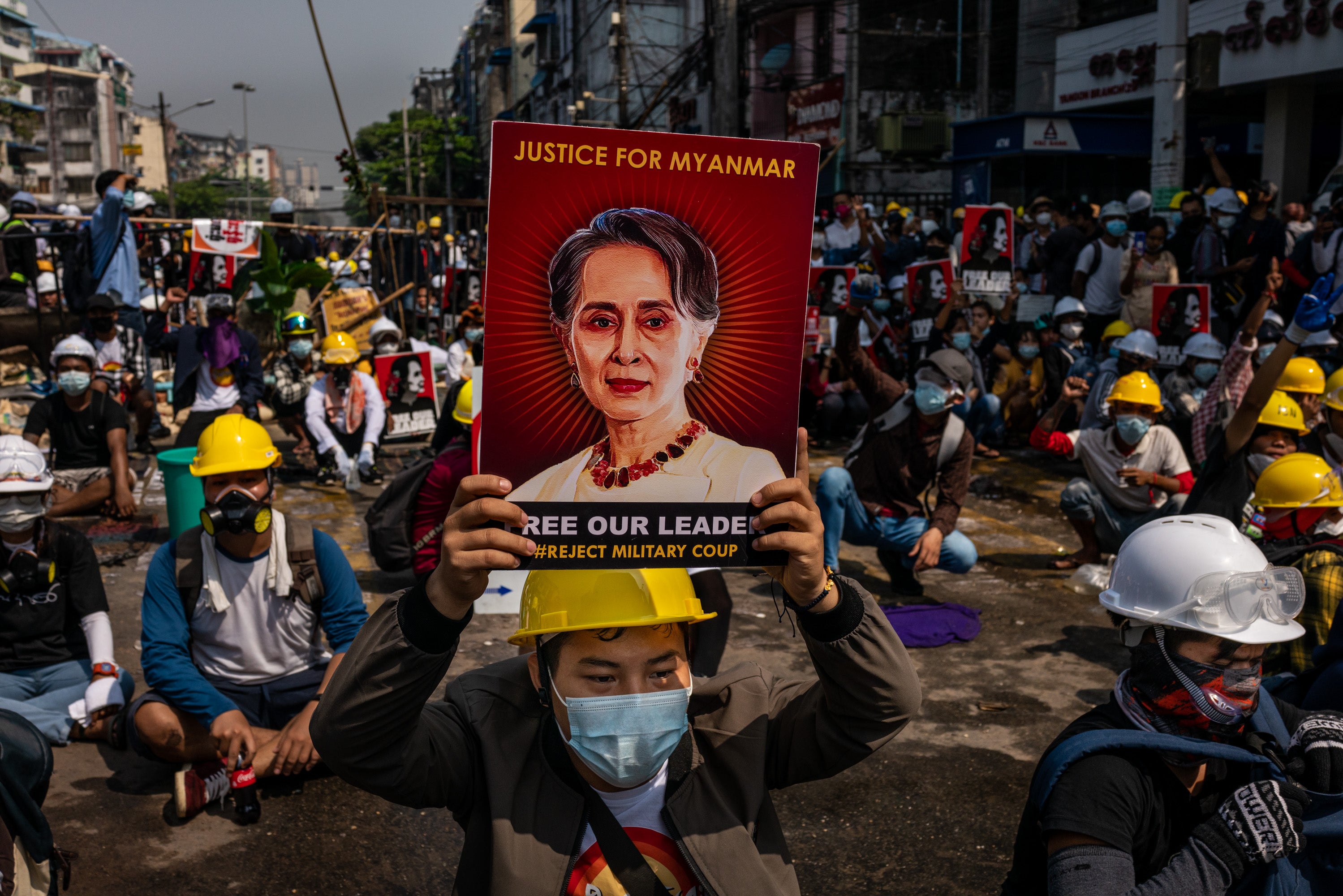International response to Ukraine ‘exposes double standards’ of most EU nations, says Human Rights Watch
HRW also praises response to crisis by calling it ‘a moment of hope’

The international response to the crisis in Ukraine came in for praise by the Human Rights Watch (HRW) in its annual report, but the non-profit also notably accused EU nations of employing “double standards”.
HRW said in its World Report 2023 released on Thursday that the response to Russia’s invasion should be widely implemented as European states came together to welcome refugees.
Millions of Ukrainian civilians fled across borders to take refuge in European countries after Vladimir Putin’s invasion in February 2022.
“More than four million refugees from Ukraine – approximately 90 per cent of them women and children” crossed the border to seek refugee by September last year.
HRW called on the governments to “replicate the best of the international response in Ukraine” and “scale up the political will to address other crises”.
It said, however, the response “exposed the double standards” of most EU member nations in their treatment of others seeking refuge from Afghanistan and Syria, which it dubbed as a “litany of human rights crises” that unfolded last year.
Unchecked authoritarian power from Russia and Afghanistan to China left behind a sea of human suffering in 2022, the watchdog said.
“But one positive outcome of Russia’s actions has been to activate the full global human rights system created to deal with crises like this,” the World Report stated.
“Amongst the fog of war and the darkness that we have seen in this war in Ukraine, there has been a shining light,” the US-based watchdog's acting executive director Tirana Hassan told AFP.
“That has been the international response and the commitment to international justice. It actually is a moment of hope.”
The 712-page report put a spotlight on the deterioration of civil liberties for women and girls in Afghanistan, the blatant rights violations on minorities and dissenting voices in China and Iran, among other authoritarian nations.
The collective spotlight on the dismal human rights situation of Uighurs in Xinjiang in China has put the Communist Party on the defensive, forcing the administration to work hard to explain its “heinous behaviour”.

Hong Kong, where pro-democracy protesters were silenced by weaponisng the National Security Law, is expected to fall on a downward trajectory with the appointment of “abusive former police officer” John Lee as the city’s chief executive.
The report stated the ruling Bharatiya Janata Party (BJP) under prime minister Narendra Modi’s leadership in neighbouring India mimicked the same abuses that enabled Chinese repression – systematic discrimination against religious minorities and stifling of peaceful dissent – to tighten its grip on power.
The Taliban, since wresting power in 2021, has imposed a series of stringent restrictions on Afghan women, in a violation of their fundamental rights to education and health care. Authorities also repressed or threatened the media and critics of Taliban rule, forcing the closure of civil society organisations, the report said.
Myanmar in southeast Asia continues to be one of the most affected countries, where the military seized power in the February 2021 coup from the elected government of Aung San Suu Kyi. “For two years, the military junta has carried out systematic abuses, including extrajudicial killings, torture, and sexual violence, that amount to crimes against humanity and war crimes.”
It said the Association of Southeast Asian Nations (Asean) failed the people of Myanmar, as the bloc has only “imposed minimal pressure” on the junta.

“We have witnessed world leaders cynically trading away human rights obligations and accountability for human rights abusers in exchange for seeming short-term political wins,” the report said, citing US president Joe Biden’s pre-election promise of making Saudi Arabia a pariah state as an example.
Governments were using online censorship and disinformation laws to muzzle independent media, the opposition and dissenters, the watchdog said.
The report added that the brutal two-year conflict in Tigray in Ethiopia, Africa’s second-largest country, has received very limited global attention.
“It’s very important that the international community continues to push for accountability in places like Ethiopia,” Ms Hassan said of the situation that has affected over 22 million people.






Join our commenting forum
Join thought-provoking conversations, follow other Independent readers and see their replies
Comments